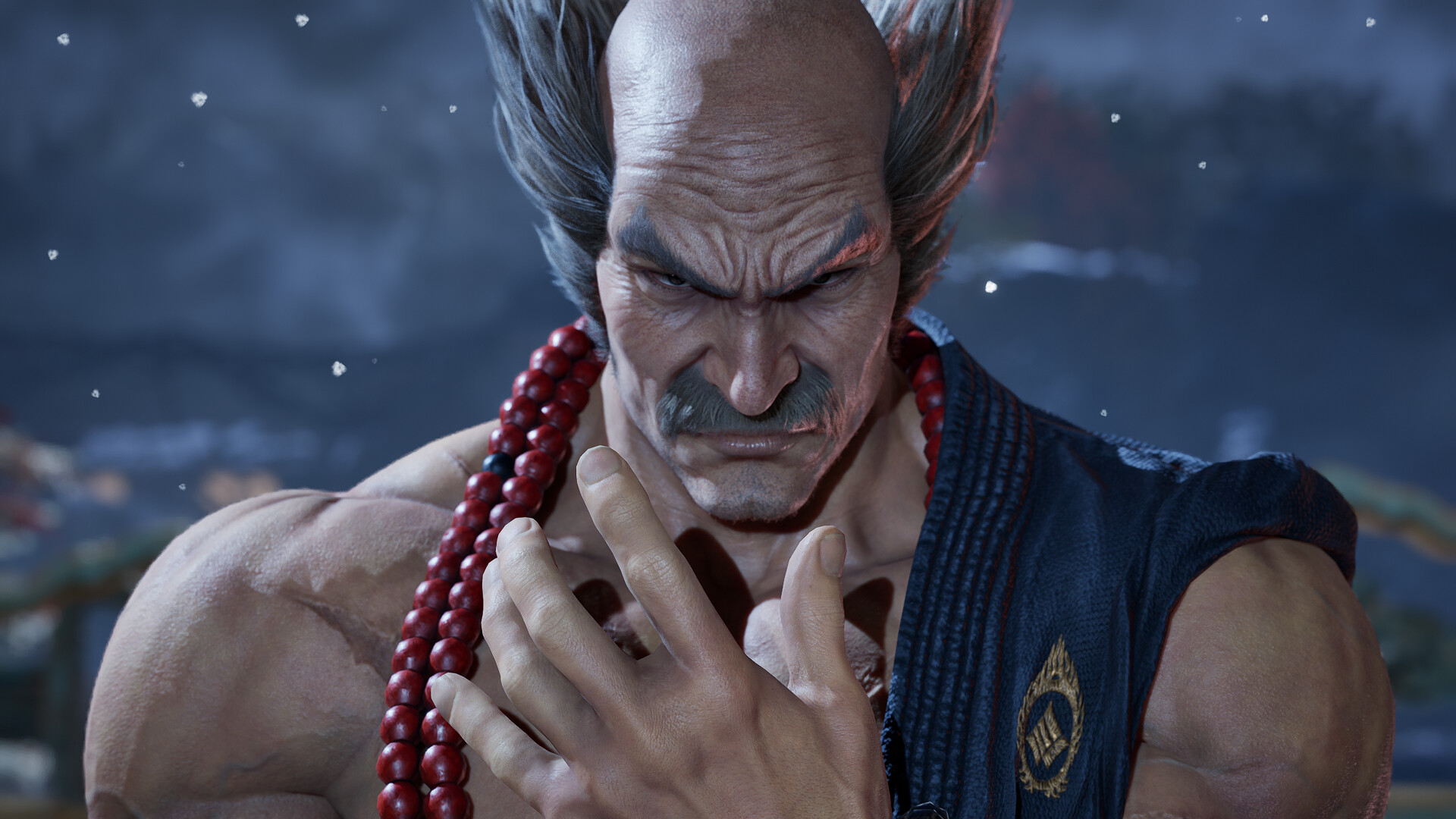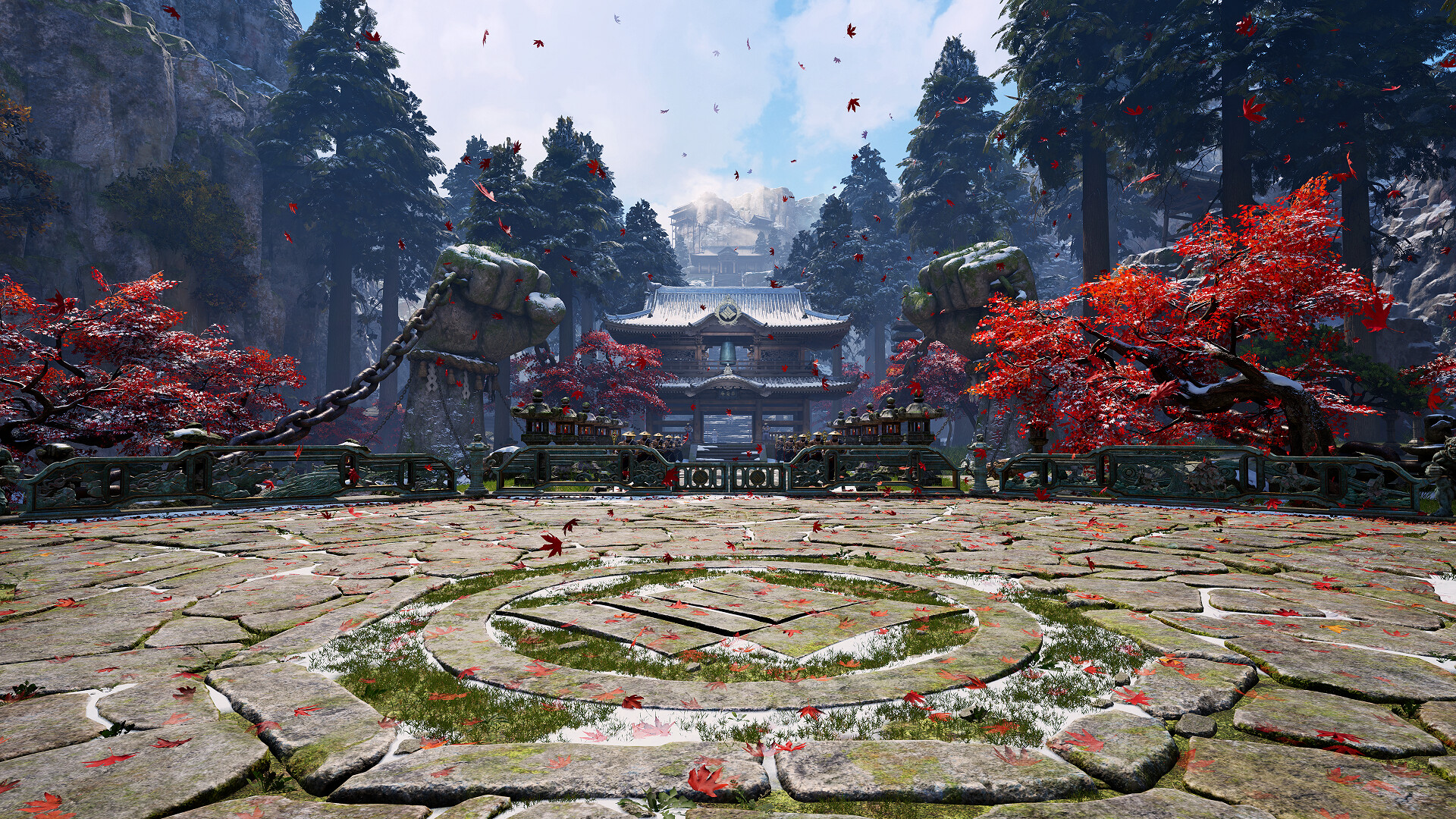
Tekken 8 has been facing ever-increasing criticism from fighting game fans upset about the title's approach to monetization, and news that the new stage accompanying the revived Heihachi Mishima is a separate, $5 purchase appears to have been the breaking point. One member of the game industry has taken it upon himself to explain why the costs associated with game development in 2024 might be pushing the devs toward more aggressive monetization.
A few weeks after Tekken 8's launch, it got a microtransaction-filled cash shop for cosmetic items. Cynically-minded players were quick to note that this happened after the game's glowing critical and user reviews had poured in, and this all set a particularly negative tone around the game's monetization. Tekken 8 already launched with a $100 Deluxe Edition and $110 Ultimate Edition, promising access to additional costumes and the first year's worth of added characters, so the cash shop seemed particularly egregious.
As characters began to launch for $8 apiece, buyers of the more expensive editions were feeling particularly burned. You could get all four characters - by far the most substantial DLC content being released - for $32. That breaks roughly even with the Deluxe Edition and is a little cheaper than the Ultimate. Either way, the cash shop meant that no edition would get you full access to all the game's content, which has been an annoyance for players of many fighting games that have made the transition to the modern era.
The devs at Bandai Namco threw players a bone with the launch of DLC character Lidia, whose release was paired with the free Seaside Resort stage. While this stage was partly made up of reused content that was already in the game, it created an expectation among players that new stages might be added for free, helping to justify all the other expensive add-ons.
Last week, when the Genmaji Temple stage launched as a $5 purchase - not even included with Heihachi or any edition of the game - those hopes were dashed. As the 'very negative' Steam reviews for stage can attest, players were fed up, and the backlash prompted a response from Tekken boss Katsuhiro Harada.

"As the person in charge of the Tekken franchise, I apologize," Harada said in a now-deleted tweet. (IGN has a transcript of the message.) In the tweet, Harada noted that "the Tekken project is divided into two companies: a game development studio and a publisher that is responsible for game sales (At the time of the development and release of Tekken 7, the development and publishing companies were not separate)."
"I think I failed to create an organizational structure that would allow me to oversee things beyond my own position," Harada continued. "One of my roles was to listen to the opinions of the Community and reflect them not only in the content but also in the out-game, but I was clearly becoming passive, worrying about the relationships between companies and not exercising my role. From now on, I will review this structure and change it to one that values the community as it did in the past."
Exactly what those changes might look like - or why Harada ended up deleting the message entirely - aren't clear. But according to game developer Del Walker - a veteran of Naughty Dog, Rocksteady, and Respawn - the expense of making a AAA game in the relatively niche fighting genre in 2024 means aggressive monetization is the only way to make it all work.
"With Tekken 8 selling 2-3 million units so far, the game probably isn't financially sustainable yet," Walker argues. "So the $5 DLC stage and the 4 $8 DLC characters are clearly necessary. @Harada_TEKKEN has previously tweeted that a stage costs around $350k to make, so making it free or part of the character season pass would likely hurt financially. Tekken 8 on paper is an astonishingly risky bet. It's almost delusional on paper, and can only survive with every current Tekken Player throwing $5 at it every 3 to 4 months, or aggressive growth."
But how could one new stage cost in the $350k ballpark? Walker says that with "a team of 8 people (3d artist, concept artist, designer, lighting artist, VFX artist, coders, technical rigger, animator) earning $60k+ per year, working full-time for 4 months, labor costs can quickly reach over $150k. Add some background characters and it can need many more." Then you need QA testers, and none of this even includes the design of Tekken's uniquely dynamic levels or the audio work to tie it all together.
🖐️ Hi, game developers perspective here - I believe TEKKEN 8 showcases how some game fans are creating conditions for their favorite games to disappear. Here's why:The community is upset about a $5 DLC stage, even for Character Season pass holders. But consider this: Tekken 2… https://t.co/L0RW4fS2EI pic.twitter.com/hPxEODTikMOctober 5, 2024
"The fan base, while passionate, isn't growing enough and seems uninterested in the financial realities," Walker says. "They review bomb these sustainability efforts, then wonder why franchises like Soul Calibur or Virtua Fighter are gone."
Tekken 8 has certainly seen a pile of negative Steam reviews since the Genmaji Temple backlash began, but you could equally argue that the term "review bomb," which has historically referred to campaigns of negative reviews that have little to do with a game's actual content, doesn't really apply here. This is, after all, a bunch of players expressing their dissatisfaction with what's on offer in Tekken 8 now, months after launch. (It's also worth noting that the game has now received a much larger, more traditional review bomb on an entirely separate issue, with Chinese players protesting controversial late-round ban of a player "who does not reside in an eligible country," according to Bandai Namco's esports division.)
Either way, one thing's for sure: it's frightfully expensive to make a AAA game in 2024, and we're likely to see publishers continue pushing the boundaries of what communities will accept in terms of monetization. Community goodwill has been profitable for many games, but the most lucrative money in the AAA space continues to be tied to aggressive microtransactions in live service titles, which are setting the tone big publishers are looking to follow.







